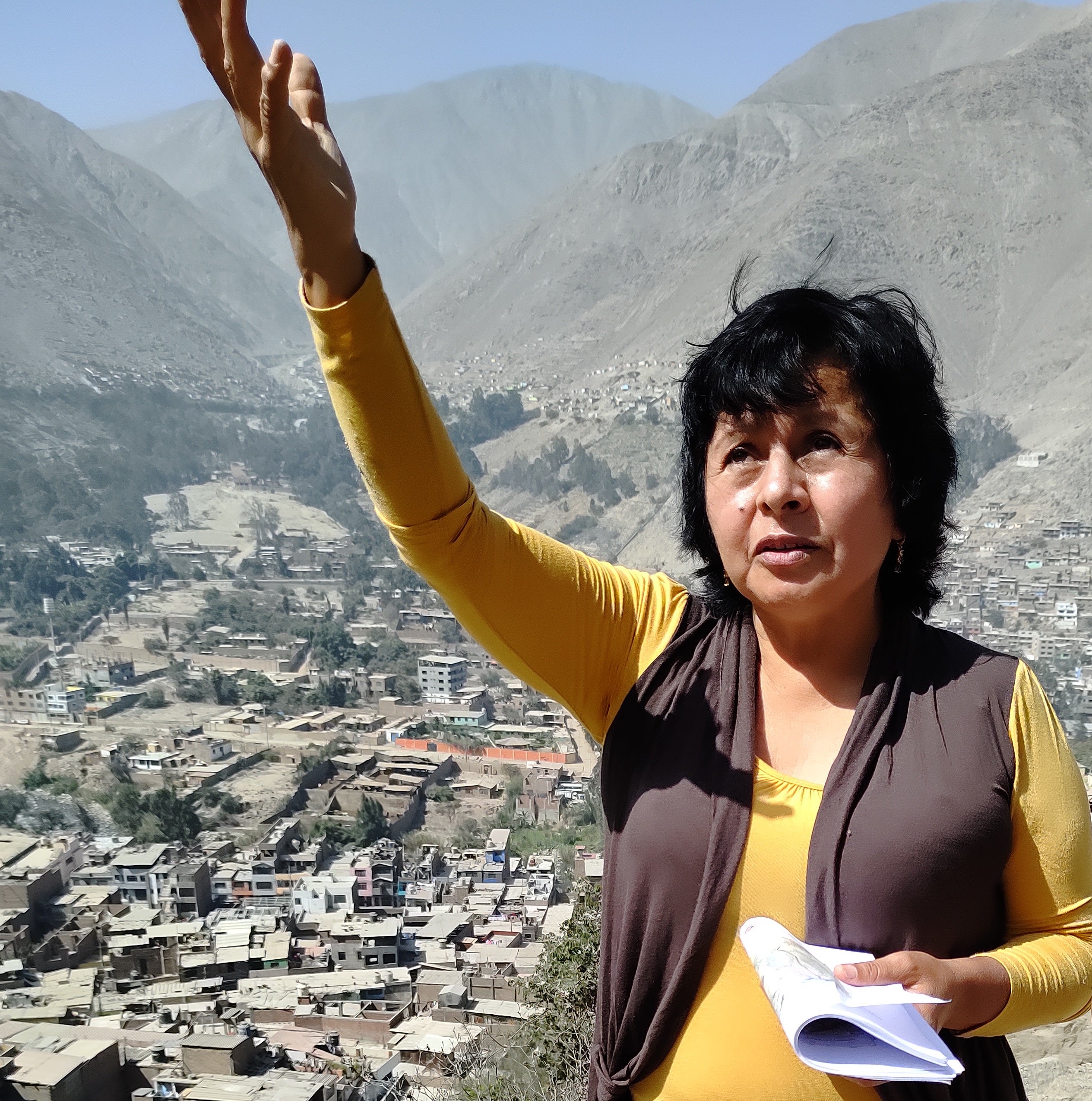Valley of fear: How anxiety over looming climate disasters can kill
Part of ‘Their fight is our fight’: The Independent’s new series reveals hope and despair on the frontline of the climate crisis

Julio Yovera Ballona, 65, died because he was terrified. Terrified for his community. Terrified for his three sons. Terrified of the looming threat of flooding and rockfalls that have plagued his hometown of Chosica, a valley town two hours inland of the capital Lima.
In 2015, a huge mudslide crashed into Chosica. Walls built by the local authorities to protect the town funnelled the water and debris, exacerbating the devastation.
The Ministry of Housing declared the area unfit for human habitation. People who remained, some of whom had lived there 60 years, were shocked to be treated as squatters.
It was too much for Julio, a teacher and community leader known for his fearlessness when confronting the authorities at town meetings. His health began to falter from the stress and fear he felt for his friends and family.
Julio died about a year after the mudslide from heart problems linked to his anxiety.
His friend, Eva Luiz Davalos, 49, a psychologist who works with local and national authorities on behalf of three communities in the Chosica Valley, told the Independent: “He was deeply shaken because he knew there was a better way of doing things. He knew there was no need to live this way.
“There is no possibility of building a future when there is a risk. You cannot build something when you know a rock can take it away in a second.”
Eva, whose work is supported by UK development charity Practical Action, says Julio’s story highlights a hidden cost to climate disasters like floods and rockfalls: The uncertainty and anxiety of climate-change sparked disasters triggers serious, often fatal, health issues.
The problem is so acute a team of psychologists from Lima was despatched to Chosica after the 2015 mudslide.
“No one died from the direct impact, but from the emotional shock,” said Eva, whose family moved to the town 40 years ago because of the appalling air quality in Lima.
“People had strokes and heart attacks in the aftermath. They think ‘when is the rock that will fall on us coming?’.
“The uncertainty also leads to migration, which badly affects the community.”
Her father, Fortunato Davelos Lopez, 79, was one of those affected. When the 2015 mudslide hit a volunteer knocked on her father’s door and Eva Luz found him crying in shock.
Eva said: “He was feeling ill and we had to take him to a hospital.”
Fortunato had suffered a cardiac arrest and was lucky to survive.
“There was a community meeting and everyone was sharing the same shock,” Eva continued. “There are many feelings of uncertainty over losing years of work and the life they have built.
“There are feelings of guilt too. The older generation brought their family here but didn’t know the risks.”
Eva says that while counselling the community is important, mitigating the threat is a far better method of alleviating the pressure felt by residents.
Practical Action has helped the people of Chosica install steel nets that catch the large rocks and prevent them from destroying property during the floods that sweep through the valley.
“It has become safer thanks to the nets,” she said. “They are a big psychological boost and give us ownership of our situation, it makes us more than just victims.
“We are more confident in terms of what we can do. We still have uncertainty but are convinced our situation can change if they take control of our destiny.”
Part of Eva’s role is working with children. She said: “Kids know about the risk but they have never lived through it. When they saw videos of the mudslide they were terrified.
“They need support managing their emotions, but technical support is what really helps.”
Vannia Aliaga, an analyst at the National Meteorological and Hydrological Service of Peru, is so fearful of the effects of climate change that she is unwilling to start a family.
She said: “The biggest fear is the lack of water. It’s one of the reasons I don’t want to have children. It’s in my ability to avoid that situation.
“That feeling is common among my generation. It’s a real concern.”
However, while some Peruvians on the frontline of the climate crisis worry, others deal with their anxiety by taking matters into their own hands.
Camila Tello, 19, and her family were forced to scramble to the first floor of their home in Santa Eulalia during the mudslide that tore through the town in 2018.
While she admits climate change makes her more concerned for the future of her sisters, who are six and 15, the teenager also feels a strong sense of resolve.
She began to volunteer with Practical Action, which coordinates people like Camila to manage evacuation procedures and gives them the tools and information they need to prepare better for climate-related emergencies so they can keep themselves safe.
She said: “People need to own their answers, they need to stop waiting for the authorities to do something and take control of their situation.”
Now she feels proud of herself in terms of her actions and the response of the community.
She said: “My family and I felt desperate. There was no help for us and we didn’t know if the river was going to wash away all our hopes and dreams.
“There was not a clear response from the authorities, so I think the answer lies within the community.”
Sam Webb travelled to Peru with the charity Practical Action.
Subscribe to Independent Premium to bookmark this article
Want to bookmark your favourite articles and stories to read or reference later? Start your Independent Premium subscription today.

Join our commenting forum
Join thought-provoking conversations, follow other Independent readers and see their replies